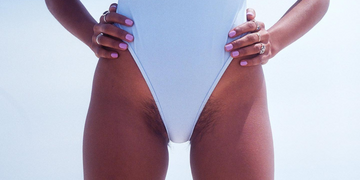Why does my vagina itch?

It can be frustrating when things feel off down there with itchiness and just overall discomfort. But what causes this inflammation, and how can you make itchiness go away? Here’s what to know about potential causes of vaginal itching, and what you can do about it.
What causes vaginal itching?
Vaginal itching can occur for a variety of reasons, ranging in severity. To help manage many of these issues, you can alter your hygienic practices, such as changing which products you use. Some of the more common causes of vaginal itching include:
- Irritation from ingredients in products like laundry detergent, soaps, sanitary products, fabric dye, condoms, and toilet paper (itching may be an allergic reaction)
- Infections such as yeast infection or bacterial vaginosis
- A post-menopausal condition due to lower estrogen levels (your vaginal lining may become thinner and dryer)
Skin conditions, such as eczema and psoriasis, and sexually transmitted infections may also cause vaginal irritation and itchiness. Although it’s less common, stress (both physical and emotional) can weaken your immune system and increase the risk of infections that can cause vaginal itchiness.
Could vaginal irritation be a sign of a real problem?
It’s best to see your doctor if you have any concerns about vaginal irritation. The itchiness could be mostly harmless, but an underlying health condition can cause vaginal irritation.
For a diagnosis of vaginal itching, your primary care provider may do a pelvic exam and take a sample of vaginal discharge to find the source of the problem. If the problem is left untreated, you might experience further complications due to underlying conditions, such as a sexually transmitted infection or another health condition.
Reach out to your primary care provider if:
Shop the article
- The itchiness interferes with your daily life and ability to sleep
- Itchiness lingers for more than a week
- You experience discomfort while having sex
- You have trouble peeing or feel a burning sensation while you pee
- You notice abnormal vaginal discharge, any ulcers or blisters on the vulva, or tenderness in the genital region
Common causes of vaginal irritation
Many things can irritate sensitive regions like your genitals. Knowing the possibilities may help narrow down the most likely reason behind your discomfort. Acknowledging the underlying cause can help you manage the problem and take steps to prevent the issue in the future.
Chemical irritants
Products like scented hygiene products, laundry detergent, fabric softener, creams, and douches can irritate your skin, particularly in sensitive areas like your vulva.
Sexually transmitted infection
Vaginal itching and irritation are common symptoms of sexually transmitted infections such as genital herpes, gonorrhea, genital warts, and chlamydia. You can treat many sexually transmitted infections with antibiotics.
Bacterial vaginosis
A change in the balance of the bacteria in your vagina may cause this condition. Symptoms other than vaginal itchiness include unusual vaginal discharge accompanied by a fishy odor. You typically treat bacterial vaginosis by taking antibiotics.
Yeast infection
These can occur when yeast overgrows in your vagina. Yeast infections become more likely when you have a weakened immune system, have sex, are pregnant, or are currently taking antibiotics. To treat yeast infections, you can find over-the-counter antifungal medications.
Menopause
Reduced levels of estrogen lead to vaginal walls thinning and drying out, sometimes causing itching and irritation. You can ease these symptoms by using an estrogen cream or vaginal moisturizer.
How can vaginal itchiness be treated?
If itching is severe, lasts more than a few days, or you also have any symptoms that suggest the presence of an infection, get in touch with your primary care provider.
Home remedies
To relieve symptoms, you can follow improved hygiene measures. Bathe and change your underwear daily to reduce your risk of experiencing irritation. It’s best to clean the vulval region with warm water because hygiene products may contain ingredients that increase the risk of irritation. Scratching as well at heat might exacerbate the problem.
Medication
Mild corticosteroid creams can provide temporary relief. These medications are used topically, not inside the vagina. If itching is severe, you may be able to get some relief by taking an antihistamine.
Treatment will depend on the underlying cause of the itchiness and irritation. You can treat itchiness caused by bacterial vaginosis or sexually transmitted infection with antibiotics. Antifungal medications are used to treat yeast infections. You can use various creams to treat other causes.
Prevention for future irritation and itchiness
To reduce the likelihood of vaginal itching and related health conditions, you can:
- Use warm water and (if necessary) a gentle cleanser to clean your vulva
- Avoid using scented hygiene products
- Avoid douching
- Use barrier contraceptives (condoms) with any sexual activity
- Wipe front to back
- If your clothes are damp (like after swimming), change as soon as you can
- Change underwear daily
- Wear cotton underwear
Even though genital itching isn’t always more than an inconvenience, it’s a good idea to contact your primary care provider to make sure there’s nothing serious going on.
Questions? We’re here for you, every step of the way. Reach out at hi@hellowinx.com to get started. For more info on sex, reproductive health, and more, check out our content hub, Real Talk.
Keep Reading

What are the symptoms of STDs in women?
May 17

What's bacterial vaginosis?
Jan 7

How do you know if you have a yeast infection?
Nov 8










